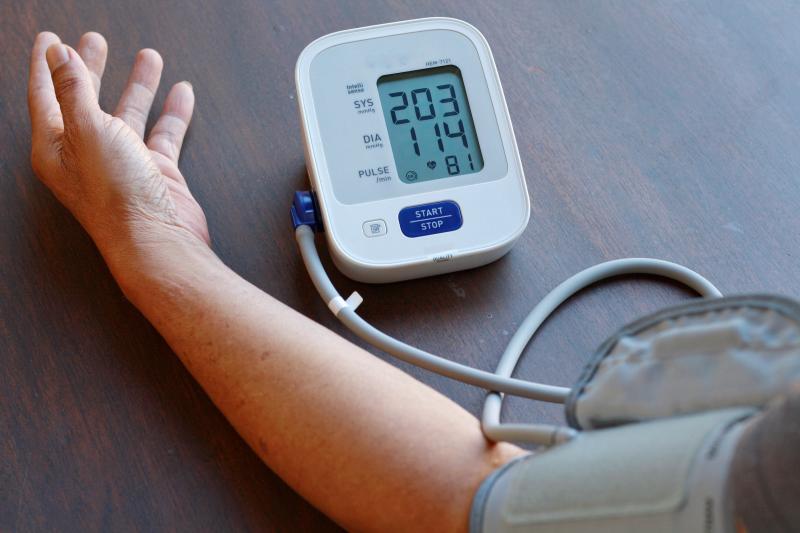Higher BMI, older age, diabetes predict progression to hypertension





Several factors, including body mass index (BMI), diabetes mellitus, and age, are associated with the risk of progression from prehypertension to hypertension among middle-aged and elderly adults, according to a 12-year Korean cohort study.
“This information may help researchers develop comprehensive and effective strategies for managing prehypertension,” the researchers said.
The study identified 115,456 participants with prehypertension in 2003–2004 from the National Health Insurance Service-National Health Screening Cohort Program. The researchers followed all participants until 2015.
The chi-squared test, or t-test, was used to evaluate potential risk factors for progression to hypertension and Cox proportional hazards model to predict the risk of progression to hypertension according to sex. The researchers assessed the incidence of hypertension in the prehypertension group by calculating the incidence density during the entire follow-up period.
Of the participants, 48,919 progressed to hypertension during the follow-up period, corresponding to incidence densities of 45.82/1,000 person-years among men and 53.57/1,000 person-years among women. [J Hypertens 2020;38:1755-1762]
The predictors of progression to hypertension among both men and women were elevated BMI, family history of hypertension, history of diabetes mellitus, and older age. Among men, progression to hypertension correlated with frequent drinking and high alanine aminotransferase levels. Among women, the risk factors were high haemoglobin and low household income.
“The strongest predictors of hypertension development were female sex, older age, higher BMI, family history of hypertension, and personal history of diabetes mellitus,” the researchers said. “These results indicate that individuals with prehypertension require lifestyle management and regular blood pressure (BP) measurements to prevent progression to hypertension.”
The association between hypertension and elevated BMI was consistent with results from previous studies, which showed that prehypertension and hypertension were more common among overweight and obese people. [BMJ Open 2013;3:e002826; J Hypertens 2005;23:1355-1360]
Earlier studies also indicated the association between hypertension and family history of hypertension, with an odds ratio of 1.39 (95 percent confidence interval, 1.22–1.59) for individuals with a family history of hypertension relative to those without. [Clin Hypertens 2019;25:6; Medicine 2016;95:e4564]
Several studies also reported the correlation between hypertension and a personal history of diabetes, which frequently coexist in the same patient. Moreover, the Epstein study found a 27-percent higher risk of developing diabetes among individuals with prehypertension and 50-percent higher among those with hypertension. [Clin Hypertens 2017;40:795-806; Hypertension 2001;37:1053-1059; Hypertens Res 2015;38:783-789; Hypertension 1992;19:403-418]
Notably, current smoking status did not correlate with hypertension development among men in the present study.
“The link between smoking and hypertension remains unclear, as some studies have shown that even a low smoking rate can cause acute BP increases and that hypertension was associated with chronic smoking,” the researchers said. [J Am Coll Cardiol 1993;22:1881-1886; Am J Med 1982;73:348-353; Atherosclerosis 2005;181:381-388; Metab Syndr Relat Disord 2015;13:140-148]
“However, other reports have indicated that BP and smoking are not related or that smoking is inversely associated with hypertension,” they added. [Hypertension 1999;33:586-590; Blood Press 2017;26:303-310; J Hum Hypertens 2017;31:821-825]